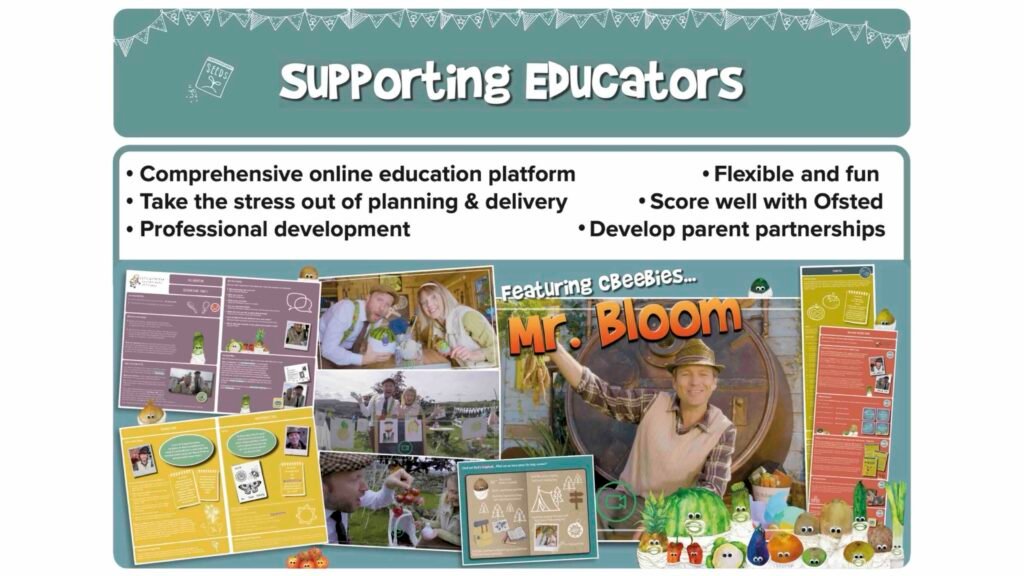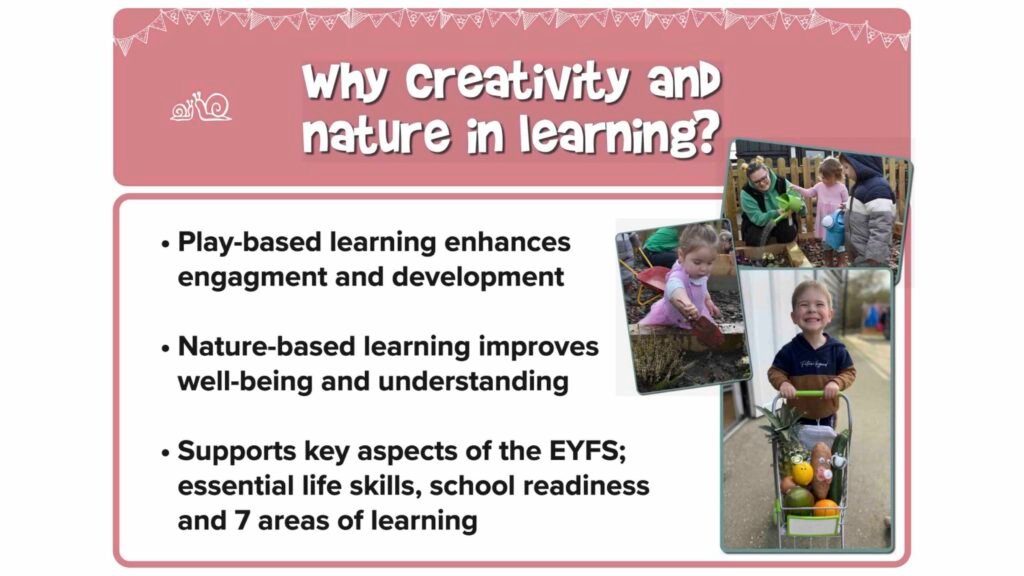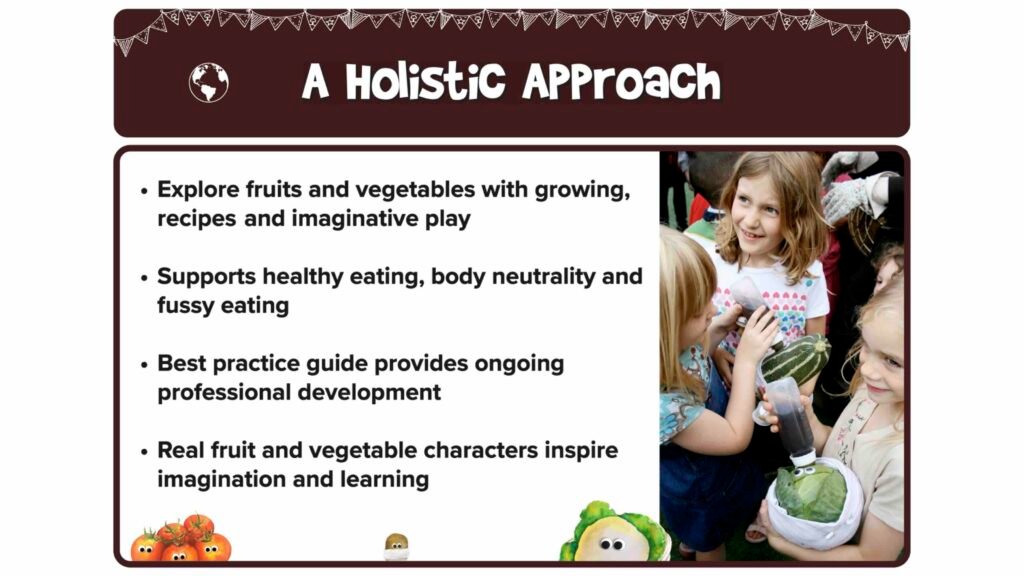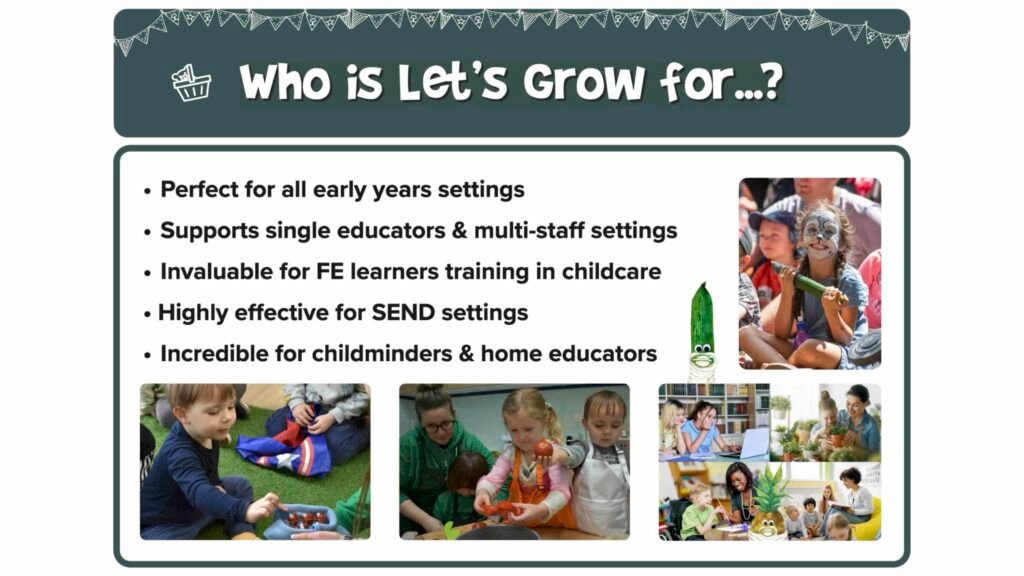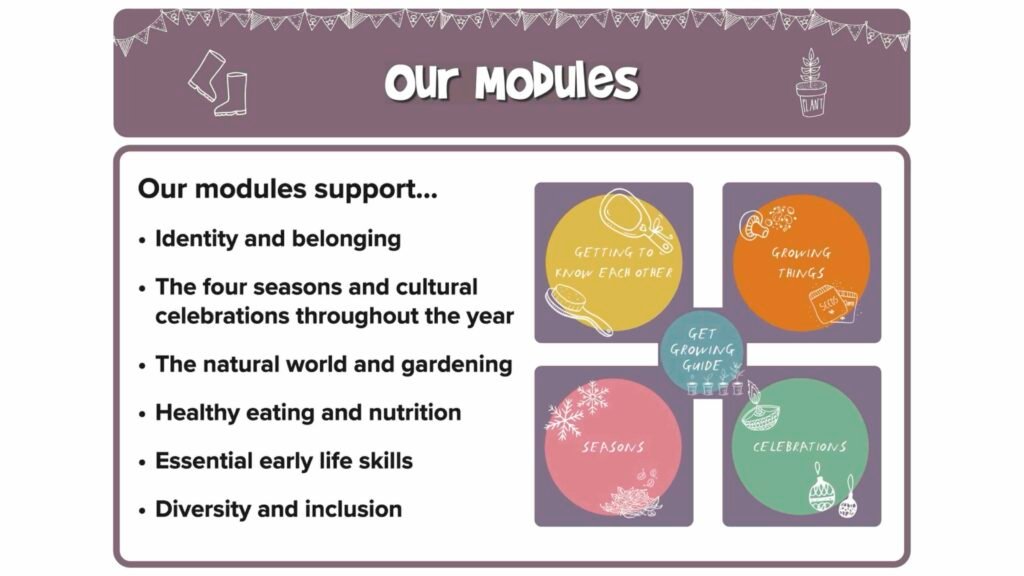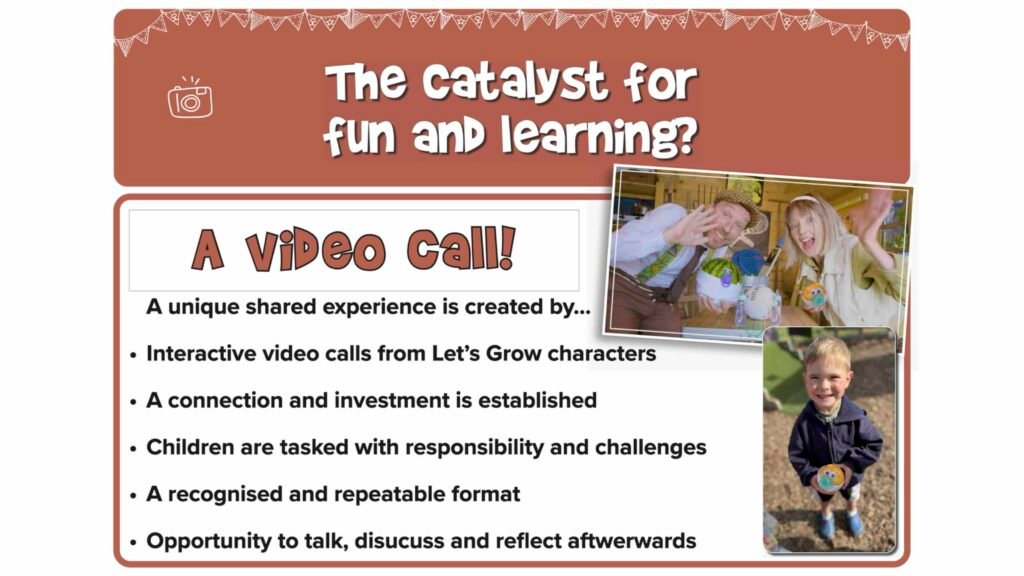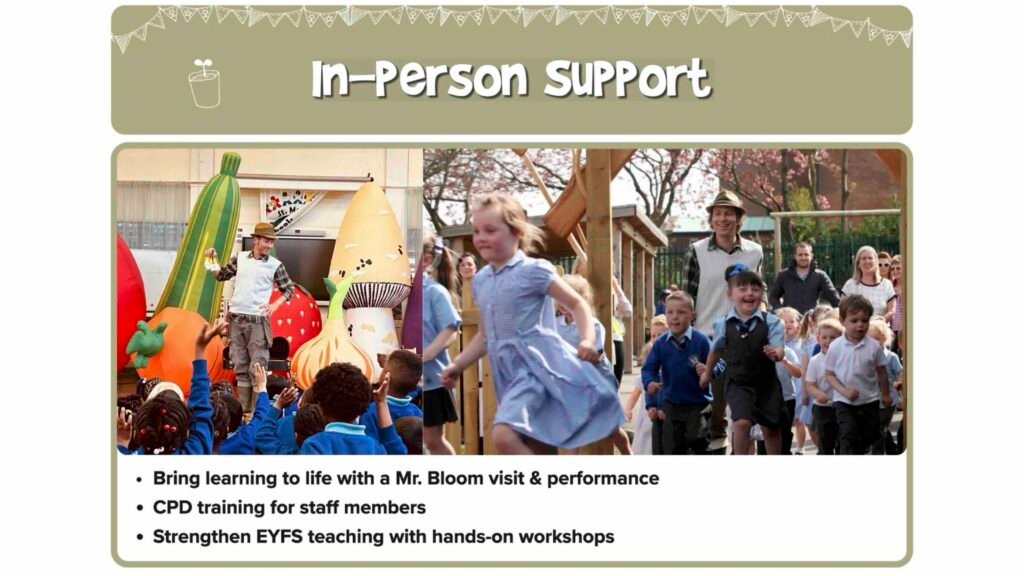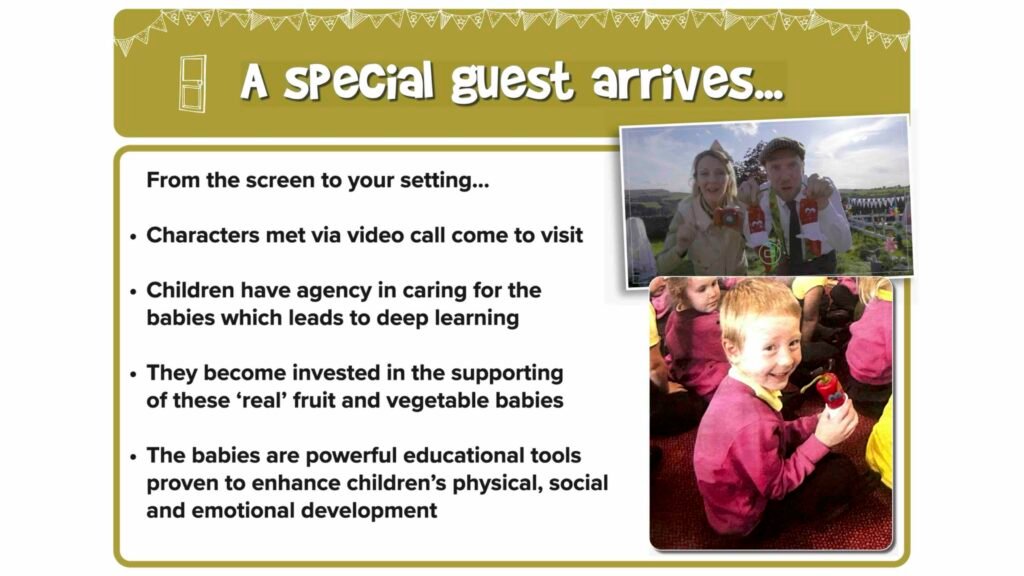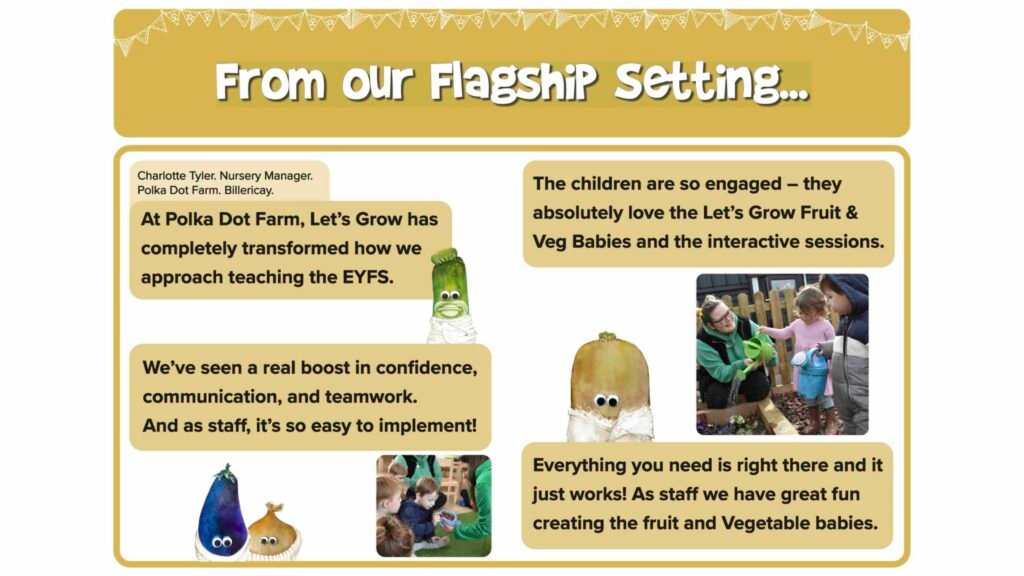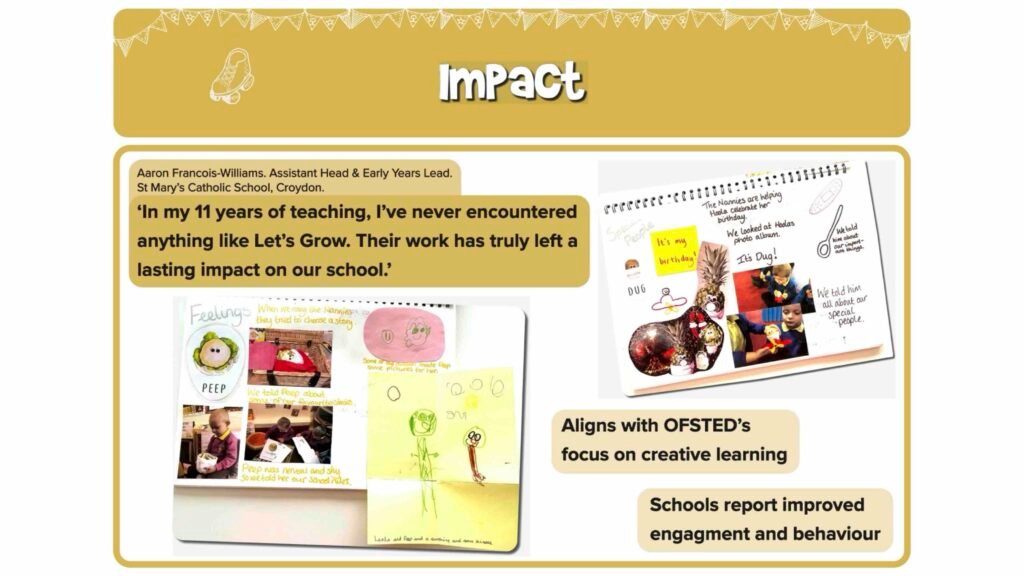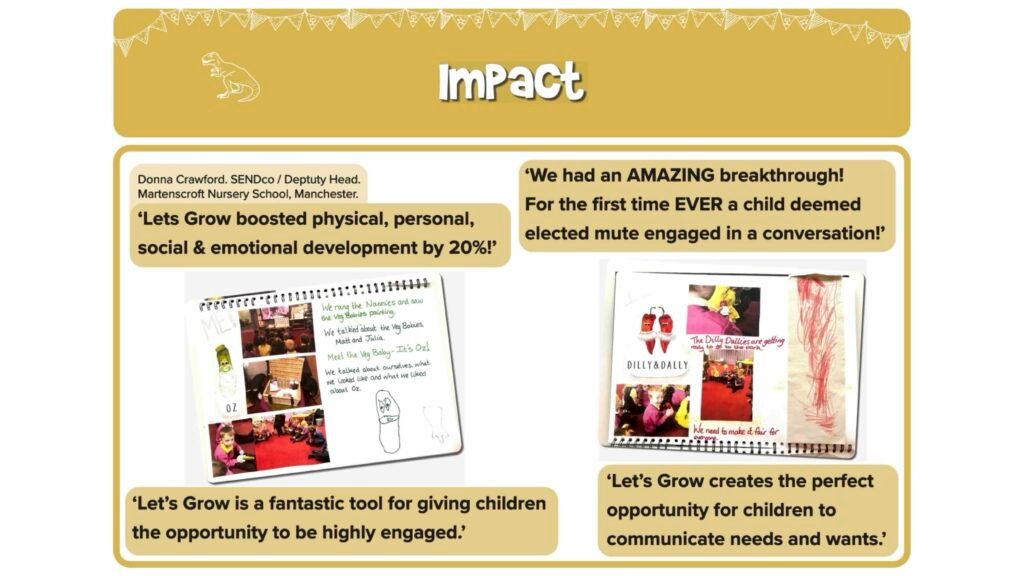Testimonials
'Donna Crawford – SENDco/ Deputy Head Teacher, Martenscroft Nursery School'. To date, the children have benefitted from the programme in many positive ways. It was a break through moment for one of our children. This child clearly wanted to participate in the activity and feed the vegetable babies with a bottle. For the first time ever, the child raised their hand and went to the front and fed the baby. The child engaged in a short conversation. This was amazing because this child had been language screened in a previous setting and was deemed “elective mute” The Let’s Grow programme created the perfect opportunity to communicate needs and wants. Ongoing, we now have a child who is demonstrating more confidence in self as well as using language as a vehicle to develop own voice at both home and school. Another example of the power of the programme was when a child, again invited to sit at the front and feed the baby, carefully nurtured the vegetable with kindness and gentle handling. This was very challenging for this child who typically would be finding it difficult to self-regulate. Ongoing, this child is learning the rules of friendships. Parents were enthused about the babies. One parent went on to buy the vegetables at the local market and sent them into school for the children to explore. For us, this was an unexpected bonus of the programme – it creates opportunity to link both home and school learning and in my opinion, this is one of the greatest tools for giving children the opportunity to be highly engaged. To summarise, on closer analysis of last year’s data, children made excellent progress in communication and language and given the context that we work in, this will always remain a high priority on our centre improvement plans. The Lets Grow programme would clearly contribute to raising standards in this area. In the area of physical, social and emotional development, managing feelings and behaviour scored 76% of children in line or above. This increased from 54% in the previous year. The example I have shared about providing self-regulation is interesting. I believe Let’s Grow provides tools in a box for children to explore so that they are emotionally well and ready to learn. Finally, the highest attainment and progress over time last year was in the prime area of physical development – 78% of children scored in line or above in the area of health and self-care. This would be a direct link to Let’s Grow. I am very impressed with the Let’s Grow programme and believe that it contributes highly to pupil engagement, attainment in the prime areas as well as being a fantastic tool for creating opportunities for children to become school ready. I look forward to continuing the programme in this coming year.
Testimonial 2
'Natasha Willenbrook – Reception Teacher, Cherry Fold Community Primary'. Listening to the initial video encouraged gathering information, waiting their turn to say hello to the visiting baby, turn taking in giving their ideas and showing caring actions toward the fruit & vegetable babies. The children were able to develop confidence in expression and managing feelings and behaviour. The programme gave opportunities for children to demonstrate caring and kind actions, which supported children’s emotional and emotive language and gave opportunities to develop turn taking and being kind to others. The children could project their own worries and anxieties onto the visiting baby, therefore helping them in settling into school themselves.
Testimonial 3
'Jo Worthy – Reception Teacher, Barden Primary School'. Let’s Grow encouraged the children to take on a role of caring for a veg baby, this is something that was easy for them to become confident with. It was great at taking turns as there was only one veg baby and children would talk to one another about who was going to have the next go and if it was fair. Children who previously maybe would not have shown a caring and compassionate side were given the opportunity to (different to a doll in a role play as it was new, interesting and exciting). Children remembered previous veg babies and talked about comparing them. Children seemed to listen really carefully to what was said about each veg baby, so that they could treat them accordingly. More verbal children would use this information to tell others how to behave! Most children had previous knowledge of babies and could use this knowledge and it was something to talk about and share what they knew. Children talked about the actual fruit and vegetables and were interested in the ones they had not come across before. It was a common theme to talk about. As many of our children had English as a second language it was a great opportunity to model new words, sentence structure and one massive point in our setting – to ask questions. Some children became more confident in showing that they wanted a turn at looking after the veg babies. Standing back from the crowd at first and then coming closer as they got more anxious that they would not get a turn. Once they had a turn, they made sure they then asked rather than just stood and watched. There were discussions on feelings and behaviour but these were mainly teacher driven and children contributed. It was wonderful how the veg babies gave the children so many opportunities to display their caring side. It was great that both girls and boys wanted to be involved, whereas sometimes it is the case that it is the girls that take over being the parent in role play of doll babies. The veg babies have different personalities with different ‘toys/resources’ that come with them – this really encourages different children be drawn into the imaginary world and gives them a ‘hook’ to draw them in. The quietest child loved that the potato veg baby had an aeroplane, he began making the noises of the plane and eventually started to make up stories as he flew them around. The children really benefited from knowing the veg babies were coming to our school to learn to get them ready for their school. It gave us an avenue for us to talk about how they felt about starting school, how they would feel more settled as they spent longer in school and got used to the surroundings.


